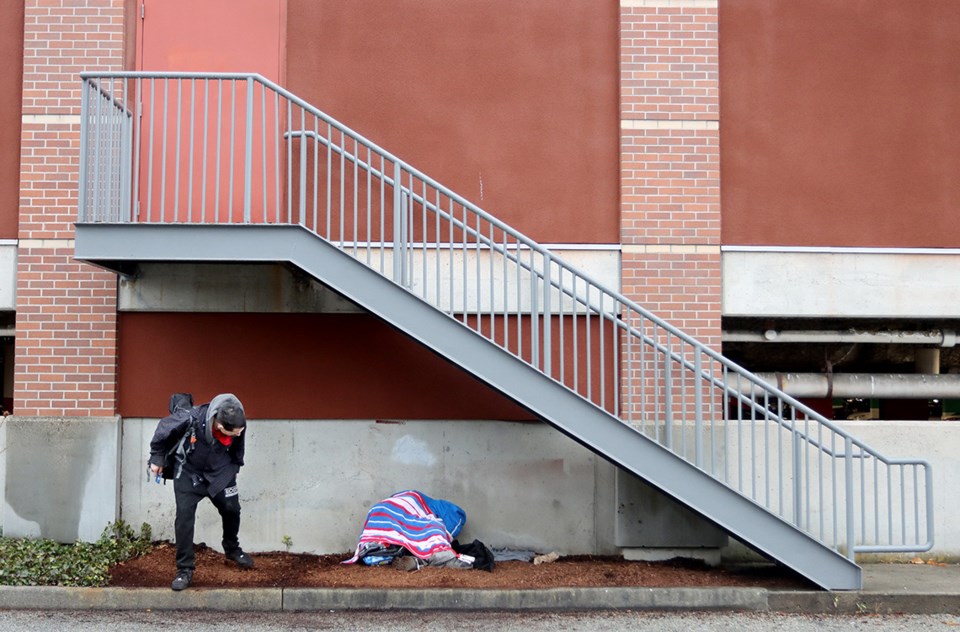A Port Moody councillor is calling on the provincial government to step up efforts to address homelessness.
Coun. Amy Lubik says new legislation mandating high density development near mass transit stations should include provisions for the construction of dedicated supported units and associated services “to house the unprecedented number of our unhoused neighbours captured in the most recent homeless count.”
On Tuesday, Jan. 9, she’ll introduce for council’s support a resolution to the 2024 Lower Mainland Local Government Association and Union of BC Municipalities (UBCM) conventions advocating for the integration of shelter spaces for people experiencing homelessness into the housing mandates.
Lubik said while the legislation is meant to address the housing crisis by providing up to 100,000 new homes in close proximity to SkyTrain stations and bus loops over the next 10 years, it does nothing for people who don’t have a home.
“There is currently no stipulation on affordability and especially not for those who are the most equity-denied in our society,” she said.
According to the Homelessness Services Association of BC, there were 4,821 people identified as experiencing homelessness in Metro Vancouver in 2023, a 32 per cent increase over the last homelessness count conducted in 2020.
In the Tri-Cities, homelessness increased by 86 per cent in the past three years, from 86 individuals in 2020 to 160 last year.
Lubik said while municipalities are doing the best they can to support their homeless populations, they don’t have the tools or proper resources to cope with the full extent of the problem.
She said the new housing construction mandates provide “an unparalleled opportunity for the province to ensure that housing supports the alleviation of abject homelessness and provides supports that people need to stabilize and thrive.”
Keir Macdonald, the co-chair of the Tri-Cities Homelessness and Housing Task Force, said all three levels of government have to step up.
"It's the chronic homelessness that I'm concerned about because it's harder and harder to address some of the harm that's been done," he said. "We need political courage."
- with a file from Janis Cleugh, Tri-City News



